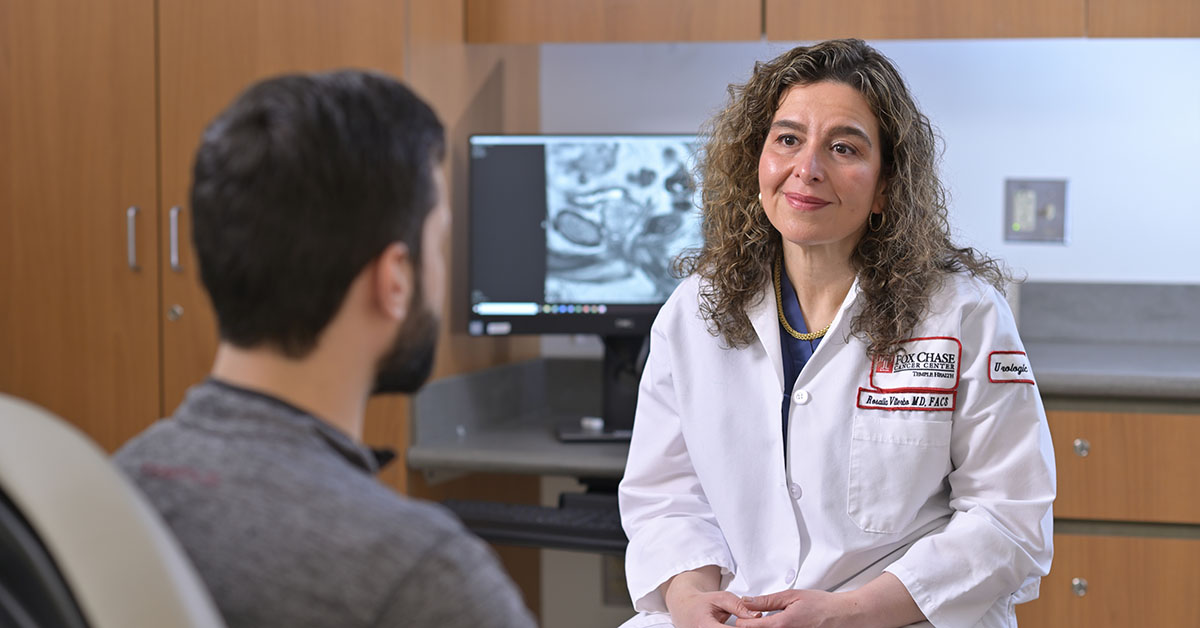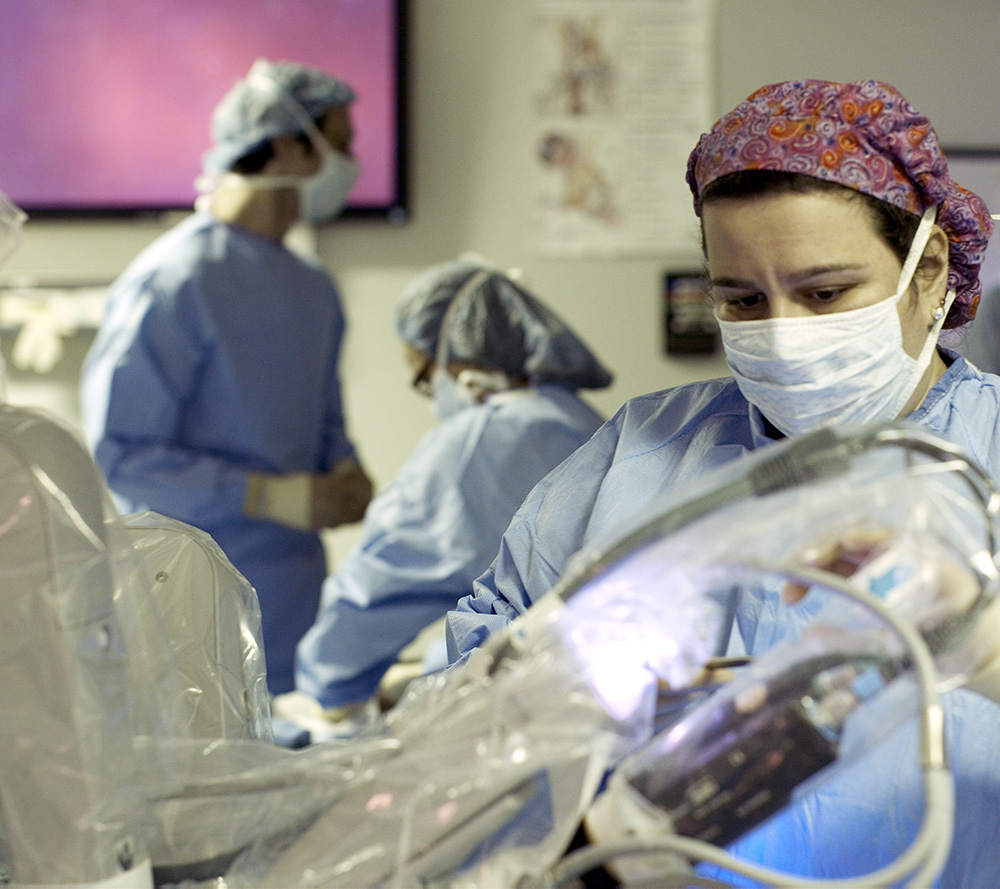The information presented in the Updates in Urologic Oncology eNewsletter is provided for physicians and other healthcare providers only and should not be shared with any current or future patients. If you are not a healthcare provider, we welcome you to sign up for Thrive eNewsletter to receive the latest information and blog highlights from Fox Chase Cancer Center.

During her residency at Temple University Health System, Rosalia Viterbo, MD, FACS, witnessed firsthand the toll that open surgery can have on cancer patients.
“Some of these surgeries—like nephrectomies or cystectomies—are pretty aggressive, requiring large incisions and long recovery times,” said Viterbo, Associate Professor in the Department of Surgical Oncology and the only female member of Fox Chase Cancer Center’s team of urologic oncologists. “I wanted to find a way to help patients recover faster so they would feel better sooner and not experience delays in subsequent chemotherapy or radiation treatments.”
In the early 2000s, increasingly more of the surgeries associated with urologic oncology were being done laparoscopically, but any that required meticulous sewing or reconstruction could not be performed with a laparoscope.
“At the time, robotic surgery was emerging for prostate cancer,” Viterbo recalled. “I envisioned being able to use this type of platform for even more complex surgeries, and it became my mission.”
A Surgical Mission
To bring that vision to life, Viterbo put her personal life on hold, packed up, and moved across the country to complete a robotic surgery fellowship at City of Hope National Medical Center in Duarte, California.
“I wanted to go somewhere where they were performing the most cases, and City of Hope was doing about eight cases a day,” Viterbo said. “By the time I left there, I had done more than 1,000 robotic surgeries.”
Viterbo brought her experience and expertise back to her practice at Fox Chase and, in the years since, has worked with colleagues in the Division of Urology and Urologic Oncology to pioneer the use of robotics in more and more cancer surgeries.

Initially, Fox Chase was only performing robotic procedures for prostatectomy, but that has since changed. Viterbo and her urologic oncology colleagues are now also performing partial and full robotic nephrectomies and robotic cystectomies.
“The early adopters of robotic surgery like Dr. Viterbo have elevated all of our care delivery skills and techniques,” said Robert G. Uzzo, MD, MBA, FACS, G. Willing “Wing” Pepper, Chair in Cancer Research and Chairman of the Department of Surgery at Fox Chase. “She leads with her heart and has made us all better by bringing forward innovative technologies when we weren’t sure what role they would play in our field.”
Viterbo has also pushed the envelope even further by adapting robotic techniques to surgical fields outside of urologic oncology.
“I am motivated to bring robotics to all specialties,” Viterbo said. “I work on a lot of combined cases with colleagues from gynecologic oncology and thoracic surgery, for example.”
In addition to her work in robotic surgery, Viterbo also continues to challenge herself to improve other surgical factors, like incision sizes and recovery times.
“We have even started considering doing robotic surgery in octogenarians because the recovery is so much faster,” Viterbo said.
Inspiring the Next Generation
The vision and drive Viterbo applies to her professional life is also present in her personal life. While working to pioneer the field of robotic surgery and improve her patients’ outcomes, Viterbo is also married and a mother of three.
“As much as I work on my career—being a great surgeon, learning new technology, and making sure I am up to date on advances that will help my patients—I also devote myself to being the best mom I can be,” Viterbo said.
As her career advanced, Viterbo found it difficult to not have many female mentors in her field to ask for advice on balancing personal and professional goals.
“Dr. Viterbo gravitated to a very male-dominated field in order to do what she loved, even though it wasn’t an obvious specialty for women out of medical school to choose at the time,” said Uzzo, who also worked with Viterbo as a resident prior to her robotic surgery fellowship.
However, growing up in a traditional Italian family in Brooklyn, Viterbo’s mother always told her that she could do anything and everything.
“I tell my children that all the time because I believe it!” Viterbo said. “I can be a great mom and a great surgeon —I don’t have to choose between the two.”
Viterbo is still only one of several dozen female physicians specializing in urologic oncology in the United States, and one of even fewer specializing in robotics.
“From a technical standpoint, I feel it is a very natural avenue for women,” she said. “As I see more and more women in urology residencies, I hope to help invigorate their passions about robotics.”